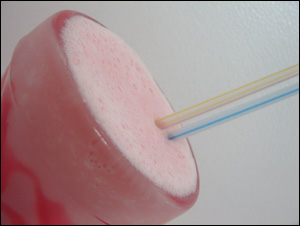 In the last decade, protein has received more attention as an essential element for weight loss. Just what does protein do for our bodies? How much do we need? How does protein intake affect our fitness plans? These are important questions to answer for the health-conscious and those who want to lose weight.
In the last decade, protein has received more attention as an essential element for weight loss. Just what does protein do for our bodies? How much do we need? How does protein intake affect our fitness plans? These are important questions to answer for the health-conscious and those who want to lose weight.
What Is Protein?
Simply put, proteins are what make up all living tissues. Proteins are involved in every cellular process and help regulate biochemical reactions. All of this science talk means that eating protein is giving our bodies extra materials to build with.
To process the energy stored in food, our bodies have to first convert it into glucose. Proteins take longer to break down than carbohydrates and this property gives protein some unique nutritional benefits.
What Nutritional Studies Show About Protein
Numerous studies have proven that protein intake is closely linked with weight loss and metabolism. A 2011 study showed that simply increasing protein intake to thirty percent of their daily calorie intake made participants feel full for longer. This caused them to consume 441 fewer calories on a daily basis. Since protein takes longer to break down, it keeps us full longer and gives us sustainable energy.
The results are even more impressive when combined with moderate exercise plans. Protein helps fuel workouts and assists in the rebuilding process after completing resistance or aerobic training. Obviously, athletes and fitness buffs have proven reasons to stick to a high-protein diet.
How Much Protein Do We Need?
Exactly how much protein should we eat each day? The Institute of Health’s Dietary Reference Intake recommendations say healthy adults need up to 35 percent of their total calories to be made up of proteins. It can be tricky to understand how much that is since produce labels measure protein in grams. In a 1,800 calorie diet, 45 grams would be ten percent of daily total calorie intake. That means anywhere between 45 and 218 grams a day would be a safe recommendation.
Creating a Protein-Rich Diet Plan
A diet rich in protein can take a little bit of careful planning and changes in eating habits. Most Americans struggle to take in 35 percent of their calories as protein. However, making such changes is worthwhile. Many high-protein foods are also high in fat. What are some ways to reach our daily protein intake without getting too many fat calories?
Dieters can find these low fat, high-protein sources in lean meats, eggs and a variety of other products. Fish, turkey and chicken are excellent sources of protein that are also low in fat. Eggs are one of the best sources of protein since they provide many other nutritional benefits as well. Low fat dairy products like skim milk and yogurt serve as healthy snacks to boost protein intake.
Protein supplements are also an excellent way to get extra protein. Whey protein, a dairy by-product of cheese, has been shown to regulate blood sugar and provide lots of vitamins and minerals. Whey also helps keep fat from being stored in the body. These are all great reasons to add protein to a daily diet plan.
Protein and Exercise
Since protein is one of the basic building blocks of the human body, it is clearly involved with building muscle. Resistance training is breaking down our muscle fibers. Our internal system responds by sending protein to the muscles and rebuilding them stronger. The body proactively is trying to prepare for more resistance workouts. Consuming 20 to 30 grams after a workout helps the rebuilding process go into overdrive. Results show that our muscles are rebuilt bigger than before. Weightlifters and personal trainers have long relied on protein’s unique properties to get the most out of the time spent in the gym.
Protein Is Delicious!
Let us not forget that protein actually tastes good. Protein gives food a rich quality that helps us stay full and adds a lot of flavor. Even supplement protein can be mixed with fruits into tasty smoothies.
All of us can benefit from increasing our protein intake. But if you want to lose weight, it is very important that you choose the right protein-rich foods to include in your low fat diet. Couple this with a good exercise routine, and you’re on your way to achieving a fitter, leaner body.
Credits: Photo courtesy of Gabriel Fiorini.